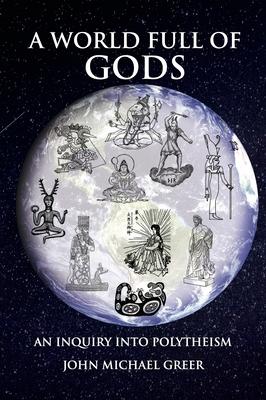Pagan religions have tended to be more concerned with practice that with theory and in a system that has no dogma - no legislated doctrine - that is as it should be. Yet as the movement grows and matures, it is inevitable that we will begin to think in a more abstract way about our models and systems.
John Michael Greer has provided a primer on the kinds of ideas and themes that must be included in any discussion of the theology and philosophy of Neo-pagan religions.
Much of the book takes shape in a dialogue with existing ideas in theology, philosophy, and comparative religion. It looks to find a middle ground between too much and too little reference to the work of other scholars to find a comprehensible yet intellectually rigorous middle ground. It aims to be part of a conversation, that stretches out over the centuries. Voices of polytheist spirituality have had little place in that conversation for many years, but much of value has been said in their absence. The rebirth of polytheism as a living religious tradition in the Western world will inevitably force a reassessment of much of that heritage, and pose challenges to some of its most cherished assumptions. Yet reassessment is not necessarily rejection, and the traditions of modern polytheism are deeply enough indebted to legacies from the past that an attentive ear to earlier phases of the conversation is not out of place.